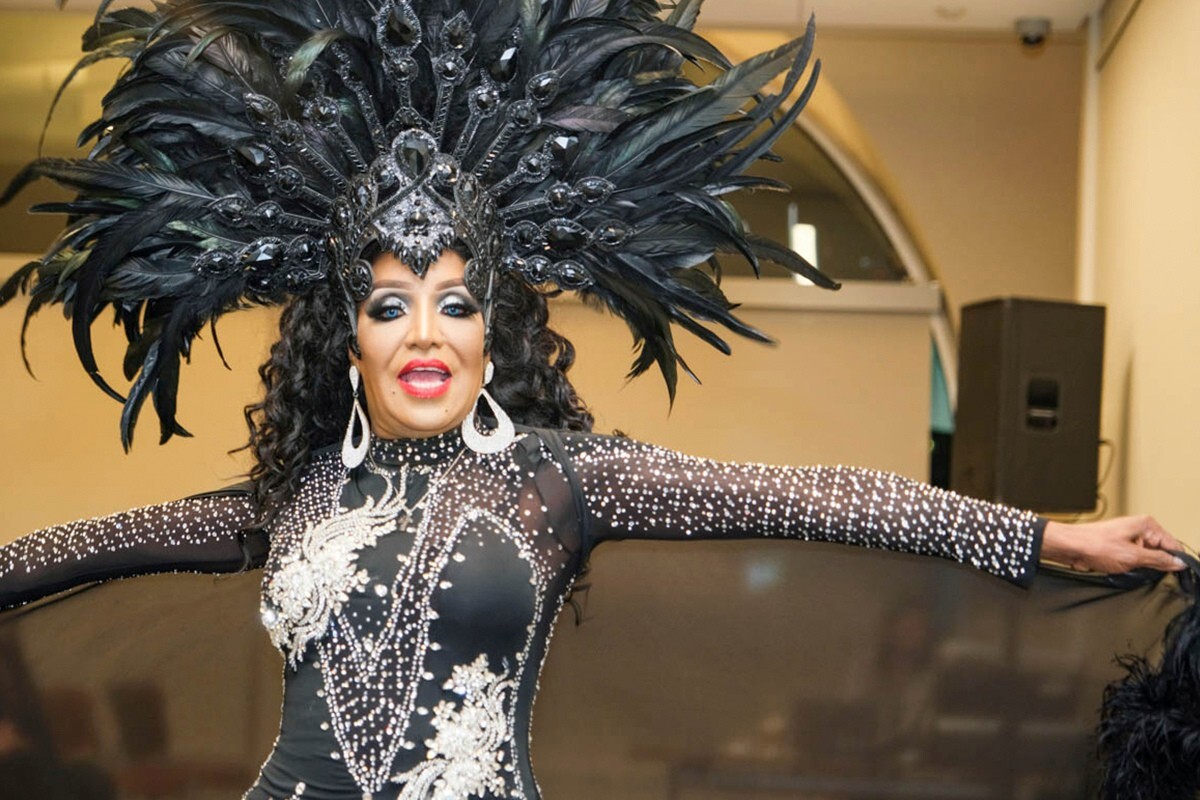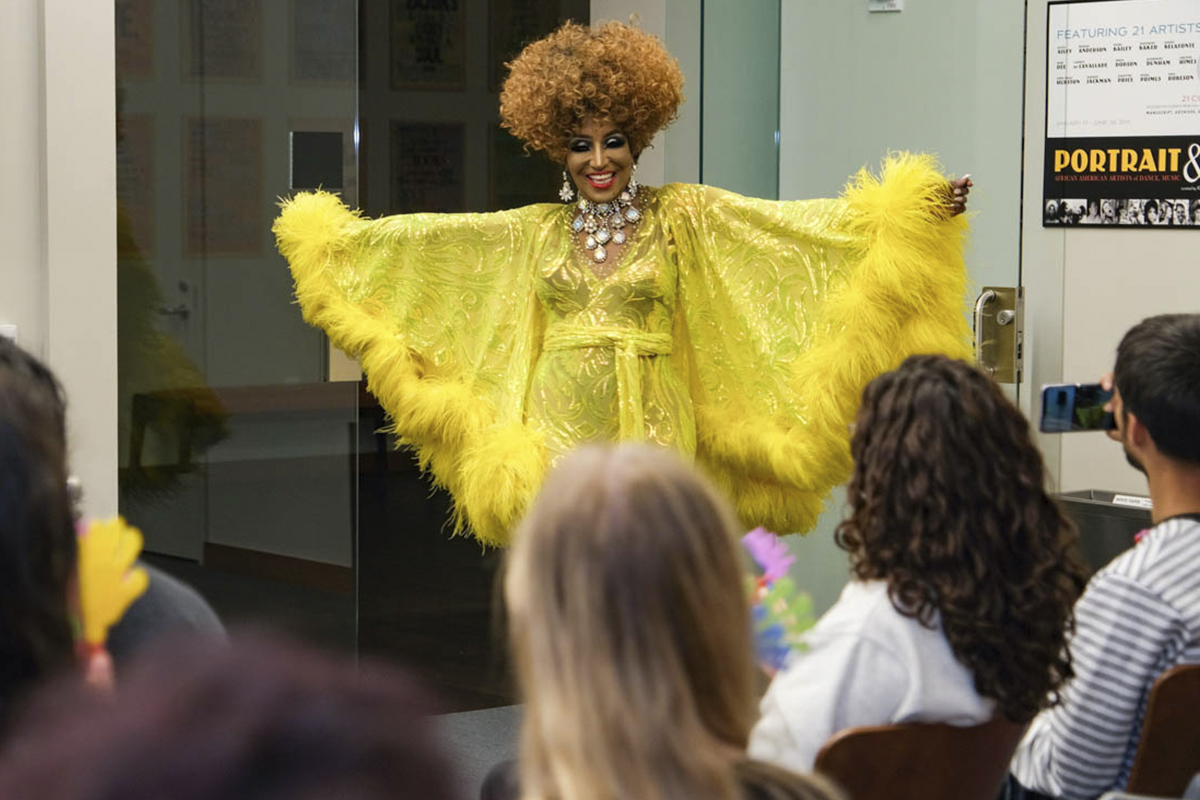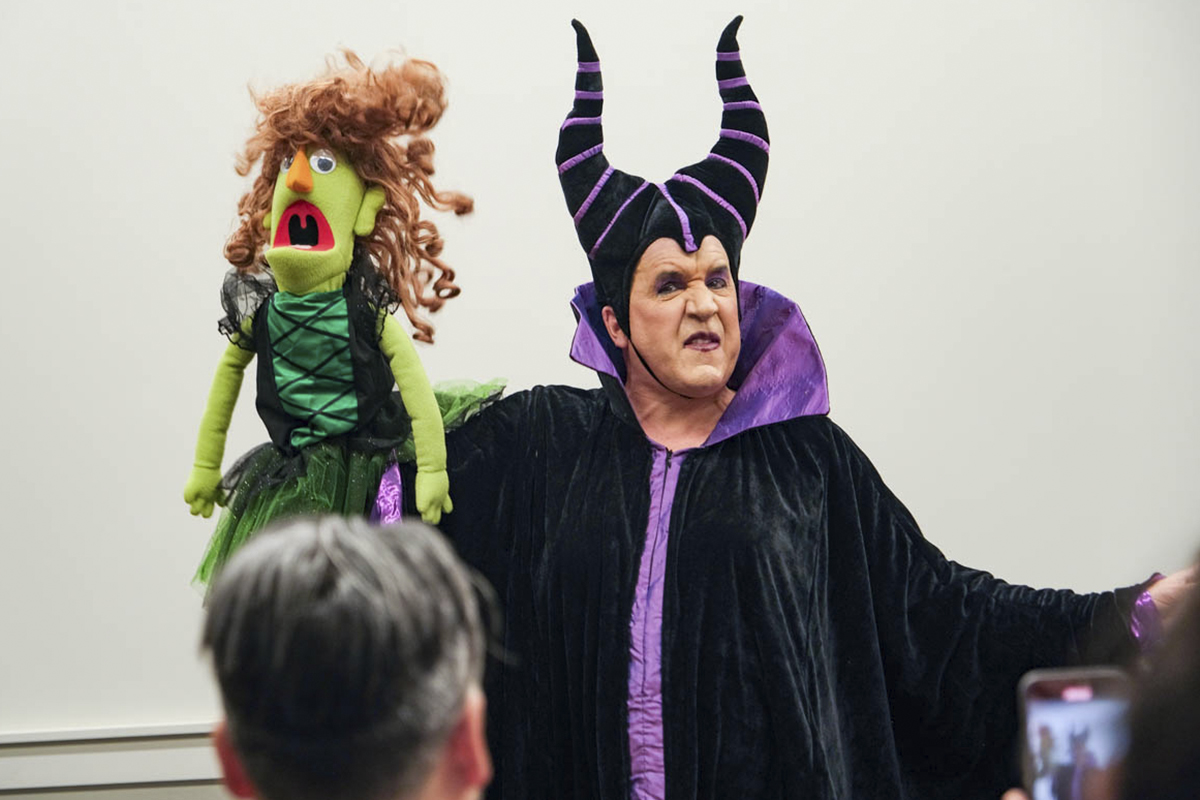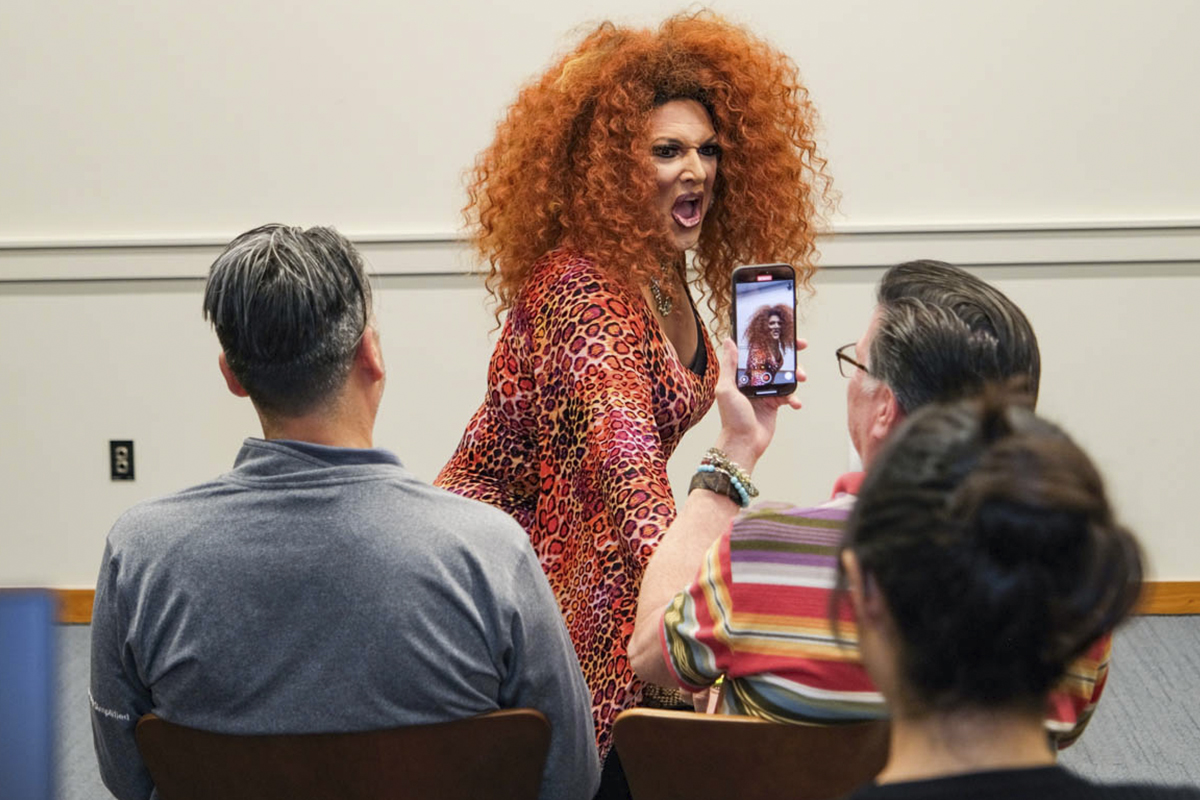The Rose Library Drag Show, now in its fifth year, brings an engaging experience to a serious research library.
For the 2025 event, entertainers including Lorelei, Tatianna Dejour, Chavon Scott and Lori DeVine — most of them with long flowing hair and rhinestone outfits — drew laughter, cheers and applause from an enthusiastic audience of Emory University students and members of the Atlanta community.
Some of the performers walked through the crowd; one paused long enough to take selfies with audience members.
Savannah Brown, a senior double majoring in linguistics and psychology, was a first-time attendee. “I’m excited to be here, and I just really like showing up to support queer events at Emory and seeing the community turn out for this.”
One drag king’s performances to merengue and salsa music prompted Diana Duarte and Robin Garces to get up and dance.
“This was my first time at a drag show ever, and I loved it because it showed a lot of diversity and happiness and joy,” said Garces, a PhD student in organization and management at Goizueta Business School.
An event with multiple purposes
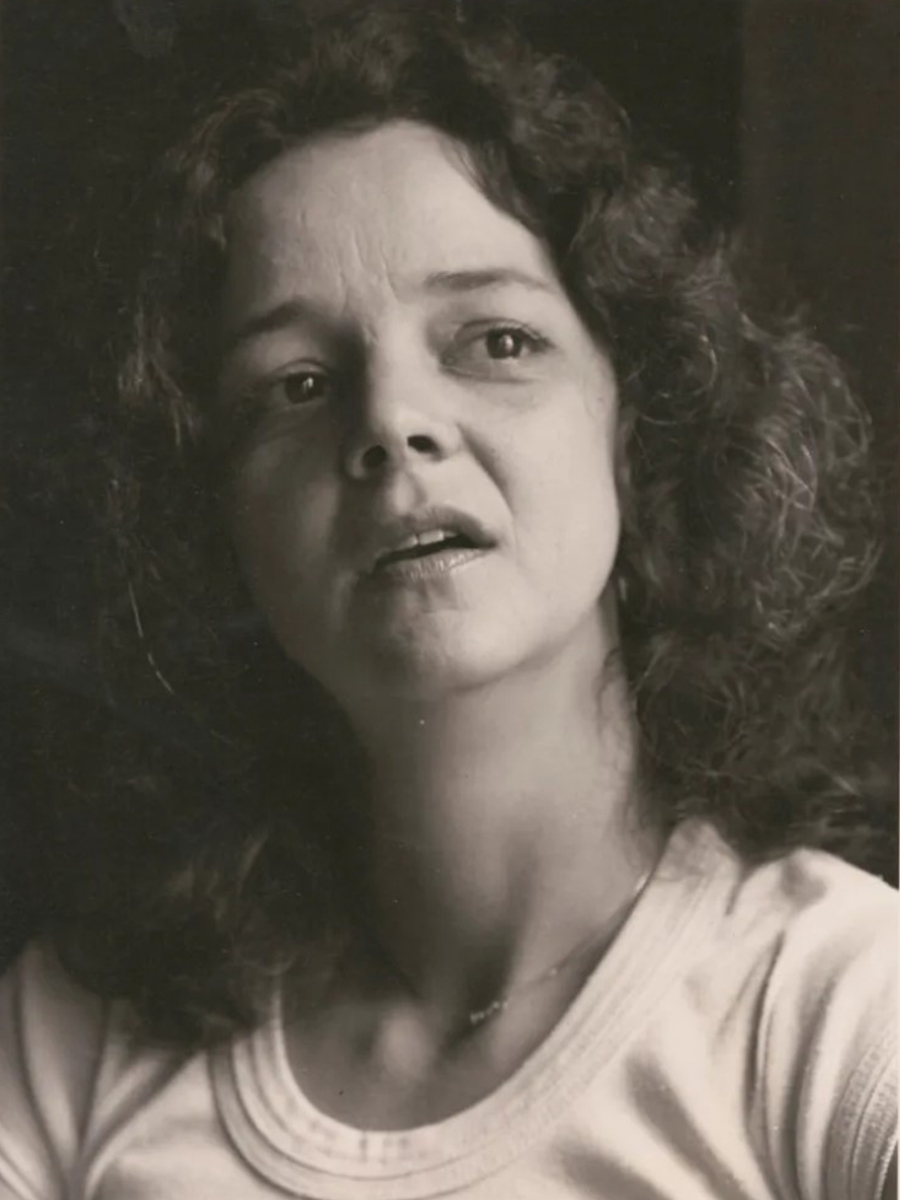
Playwright and activist Rebecca Ranson wrote her first play after her friend Warren died of AIDS in the 1980s. Photo from Rebecca Ranson papers, Stuart A. Rose Library, Emory University.
“We want to give students an opportunity to have an experiential, transformative interaction with our collections,” Ott says. “The drag show helps them see that these materials are there for them to interact with. It's a fun and relaxed environment where they can have a different relationship to the Rose Library than they would have in some of our other services and programs.”
The Rose Library collects in the LGBTQ area because it’s a critical part of the history of Atlanta and the South, Ott says.
“Atlanta has always been a center for LGBT+ people throughout the South,” says Ott. “Atlanta is the drag capital of the Southeast. We collect the history of drag to reflect the cultural history of Atlanta.”
Ott says several of the collections refer to or document drag, including the photographs of Jon Arge, Royce Soble and Marvin Rhodes, and the recordings of the American Music Show, an Atlanta public access show with music, comedy and drag performances where RuPaul made his first appearances.
“This is an event that students look forward to every year, and I also think that it is something that has really helped students who identify as LGBT+ understand that their experiences at Emory are something worth collecting and preserving,” says Ott.
Randy Gue, assistant director of collection development and curator of Political, Cultural and Social Movements at the Rose Library, plans the drag show each year with Lorelei, one of the entertainers. All are professional drag queens who perform regularly in the Atlanta area.
Audiences in the drag show’s early days consisted of more community members than students, Gue says, but “in recent years, it’s been about 60-70% students and 30-40% community members.”
“I want people to say, ‘I didn’t know libraries had events like that,’” says Gue. “We like to do things differently at the Rose Library, and fun events like the drag show are part of that approach.”
LGBTQ collections offer hands-on experiences and impact
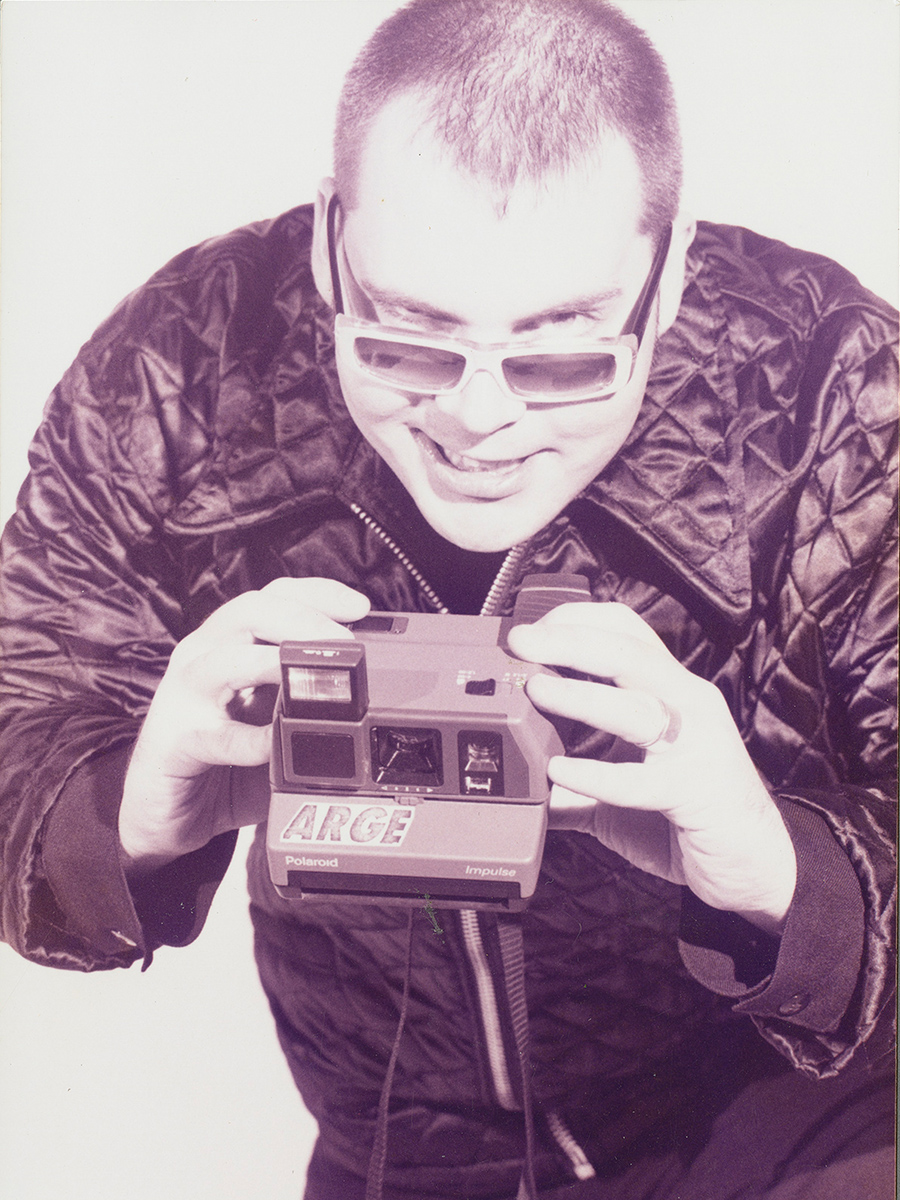
Jon Arge’s Polaroid photos in the Rose Library help tell the story of Atlanta’s LGBTQ community. Photo from Jon Arge papers, Stuart A. Rose Library, Emory University.
Arge has been photographing LGBTQ house parties, nightlife and events since the 1990s. He placed his collection of photographs, including more than 5,000 Polaroids, with the Rose Library in 2017.
The Polaroid collection grew from Arge’s desire to get out of the house and meet people despite his severe social anxiety.
“I told people, ‘I’m terrible with names, so let me take your picture and have you sign it,” he says. Without realizing it, he documented Atlanta’s LGBTQ community for nearly 40 years.
Arge took selections from his collection when he visited the Film 215: Queer Visions class taught by David Barba, assistant professor in Emory’s Department of Film and Media, in October 2024.
“The students went around and looked at them, then they asked me thoughtful questions,” he says, noting the recent renewed interest in Polaroid cameras among young people and the students connecting with his Polaroids.
“It’s a strange feeling” to be considered part of Atlanta’s LGBTQ history and to have his work in a collection that students and others can study and use for research, Arge says.
“But it's a nice feeling, too,” he adds. “And it's so marvelous that these materials are protected like this, and that all these things can find a home and play a part in the collective voice.”
As Gue says, “Donors want to know that the materials they placed with us are being used, that they’re not going to be sitting on a shelf somewhere, but people are going to engage with them.”
Oli Turner, who graduated in May 2025 with a bachelor’s degree in English and creative writing, discovered the LGBTQ archives during an assignment for her Southern Literature class: students were directed to write about anything involving Southern literature using any of the Rose Library’s collections.
Turner searched the terms “Southern lit” and “LGBTQ” in the Rose Library’s website search engine and came across Rebecca Ranson, a playwright and activist who wrote her first play after her friend Warren died of AIDS in the 1980s.
“I had never heard of her, and I started getting really into her archive after visiting the Rose Library and reading some of the journals,” says Turner. “I happened to have picked some of the journals from 1984 when she was writing about her friend Warren. I became fascinated with her, and with seeing this really raw emotion in the archives for anyone to go up and read. I couldn't stop thinking about her. Then I proposed it for my undergraduate honors thesis, because I thought that she was someone that more people should know about.”
That proposal led to Turner’s undergraduate honors thesis “‘I Begin Again’: Witnessing Rebecca Ranson’s Atlanta.” She conducted most of her research in Ranson’s papers in the Rose Library’s LGBTQ collections; her thesis received Highest Honors.
Her personal experience helped Turner clearly see the value of the archives at the Rose Library.
“I find it really special as an undergraduate researcher. I think that it’s a unique part of Emory’s collections that we’re able to access so much so easily — being able to literally hold her diaries is a singular experience. I can’t think of much else in this life that’s made me feel this way, except maybe looking through my grandmother’s stuff. It’s all very intimate and close.”
For more information on the Rose Library’s LGBTQ collections, contact rose.library@emory.edu or randy.gue@emory.edu.
